In recent years, the fluctuations in oil prices have become a hot topic, raising questions about the possible conspiracy theories lurking behind them.
Oil, often referred to as the lifeblood of the global economy, significantly impacts international affairs through its price changes.
However, the mechanisms behind price determination are not always entirely transparent.
Among experts and urban legend enthusiasts, there are suspicions that secret forces in the oil industry may be manipulating prices to their advantage.
This article delves into the background of conspiracy theories surrounding the oil industry and explores their validity.
- The connection between oil price fluctuations and international politics
- Case studies cited as evidence of price manipulation
- Influential organizations within the oil industry and their roles
- The origins of conspiracy theories and the general perspectives surrounding them
Historical Background of Oil Price Manipulation
Oil has been a central factor in global energy supply since the early 20th century.
Consequently, oil prices have been a direct influence on international politics and economics.
However, history reveals that oil prices have not been dictated solely by market principles.
Notably, the oil shocks of the 1970s serve as prime examples of manipulated oil prices.
The Role of Oil in Economic Dominance
Oil’s significance goes beyond its value as an energy resource.
Many nations have built economies centered around oil, increasing their influence in global markets.
Major oil-producing countries like the United States, Russia, and Saudi Arabia have used economic policies tied to oil to control world affairs.
This has made oil price manipulation a geopolitical issue, not just an economic activity.
Policies of Oil-Producing Nations and Price Manipulation
Oil-producing countries adjust supply to maximize their own profits.
Through coordination, such as with OPEC, they manipulate demand-supply balances to control prices.
Such manipulation pursues short-term gains but also impacts the long-term energy market.

The Rise of Emerging Nations in the Oil Industry
Since the late 20th century, emerging nations have increasingly entered the oil market.
This has altered the traditional dynamics of oil price manipulation.
Countries like China and India have emerged as major players, shifting the power balance in global markets.
These nations use unique policies and technologies to influence the established order.
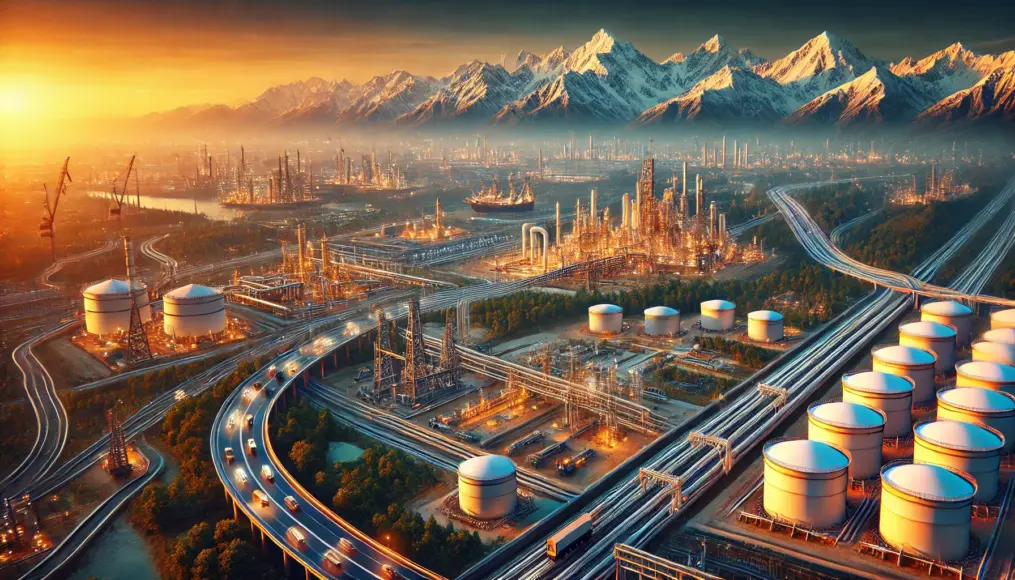
The Impact of the 1970s Oil Shocks
The oil shocks of 1973 and 1979 triggered massive price surges.
This price spike was driven by strategic supply restrictions by Middle Eastern countries.
OPEC used this control to send a political message.
This led to economic chaos in many nations, highlighting oil’s potential as a political weapon.
Economic Changes After the Oil Shocks
The oil shocks forced nations to reassess energy policies.
It sparked efforts to find alternative energy sources and improve energy efficiency.
In Japan, energy-saving technologies rapidly advanced, improving overall energy efficiency.
These changes laid the groundwork for economies less reliant on oil.

The Complex Relationship Between Politics and Oil
The oil shocks clarified that oil is not merely an economic resource but also a political tool.
Middle Eastern countries altered the global power balance by restricting oil supplies.
This influence continues to affect energy markets today.
It has created opportunities for new negotiations and tensions in international relations.
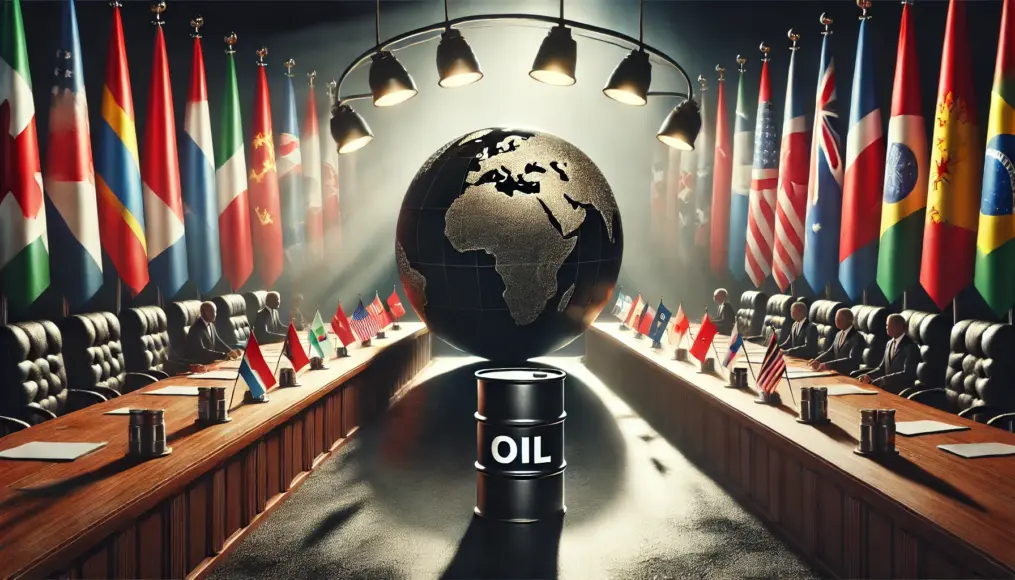
The Link Between Oil Prices and Wars
Historically, oil price manipulation has been closely tied to wars and conflicts.
During World War II, oil was vital to the military strategies of various countries.
Subsequently, conflicts like the Gulf War and the Iraq War have often involved oil interests.
These wars have had long-term effects on the global economy through oil price fluctuations.
Examples of Wars Over Oil
The Gulf War and Iraq War are notable examples where oil was a key factor in conflicts.
These wars showcased intense international rivalries over oil rights.
They also triggered spikes in oil prices, leading to energy crises worldwide.
Such examples underscore oil’s role as a strategic tool in international politics.

Influence of Major Corporations
In the energy market, large corporations wield significant influence over pricing.
These companies strategically adjust supply chains and partnerships to dominate markets.
Some collaborate closely with governments, influencing policy decisions.
These realities highlight the opacity of oil price mechanisms.

- The Role of Oil in Economic Dominance
- The Impact of the 1970s Oil Shocks
- The Link Between Oil Prices and Wars
- Mechanisms Behind Oil Price Manipulation and Key Players
- Unveiling Oil Industry Legends and Rumors
- The Impact of Oil Price Manipulation on the World
- The Intriguing World of the Oil Industry and Conspiracy Theories
Mechanisms Behind Oil Price Manipulation and Key Players
The manipulation of oil prices has been a significant factor throughout history, with numerous organizations and nations involved.
This intricate system involves various interconnected factors that influence global oil markets.
Among the most notable players are the organizations that dominate the oil industry.
OPEC (Organization of the Petroleum Exporting Countries) is a prime example, adjusting production levels among its member nations to control prices.
OPEC’s Role and Influence
OPEC was established to stabilize global oil prices, but its power also functions as economic and political leverage.
Decisions on production quotas made among member countries significantly impact the supply-demand balance in the market.
Internal conflicts often arise when specific nations prioritize individual interests, leading to unpredictable market reactions.
How OPEC Adjusts Prices
OPEC primarily manipulates prices by increasing or reducing production levels.
For example, production is often ramped up during the winter to stabilize rising demand.
Conversely, during periods of oversupply, production cuts are implemented to prevent price drops.
This strategy directly impacts short-term price fluctuations in the market.
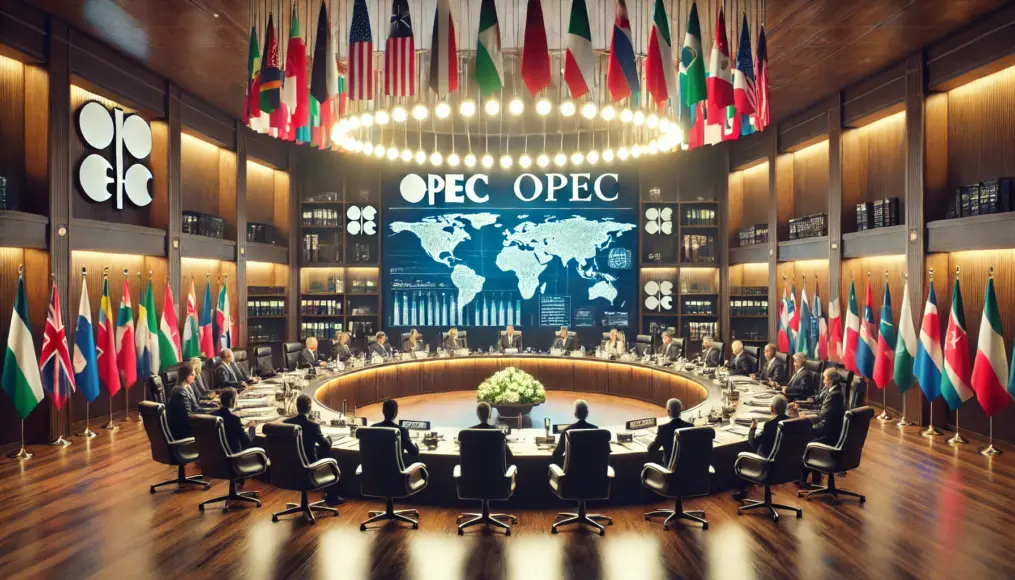
Influence of Non-OPEC Nations like the U.S. and Russia
Non-OPEC countries, particularly the U.S. and Russia, also play a critical role in shaping oil prices.
The U.S. has become a leading oil producer through the shale oil revolution, significantly increasing global supply.
This surge has driven price drops, intensifying competition with OPEC nations.
Russia uses its independent energy policy to strengthen geopolitical influence, often causing ripple effects across the market.
Competitive Strategies of Non-OPEC Nations
Non-OPEC nations often counter OPEC’s moves with their own strategies.
The advancement of shale oil technology in the U.S. has enabled extraction in regions previously deemed unviable.
This innovation not only reshaped market dynamics but also provided fresh avenues for global energy policies.

The Role of Investors and Hedge Funds
Investors and hedge funds also exert significant influence over oil prices.
Through the futures market, these players speculate on price trends and execute large-scale transactions.
Such activities frequently lead to sharp price volatility.
The impact of market psychology on oil prices underscores the commodity’s dual role as both an energy source and a financial instrument.
Market Fluctuations Driven by Investors
Short-term profit motives of investors and hedge funds can amplify market volatility.
These rapid shifts in the market often create uncertainty, with effects trickling down to the average consumer.
The financialization of oil contributes to its dynamic and unpredictable pricing.

Unveiling Oil Industry Legends and Rumors
The oil industry is deeply entwined with the global economy, giving rise to numerous legends and rumors.
These stories often blend reality with fiction, raising intriguing questions.
For instance, there’s the rumor that “oil is an infinite resource” or that “the oil crisis was artificially orchestrated.”
Are these mere fantasies, or could there be some truth in them?
The Legend of Infinite Oil Supply
Some conspiracy theorists suggest that oil is actually an inexhaustible resource.
According to this theory, oil is naturally replenished deep within the Earth, ensuring a continuous supply.
Proponents argue that oil companies manipulate scarcity to control prices.
However, no scientific evidence currently supports this claim.
Scientific Rebuttal
Geologists explain that oil forms from organic material deposited over millions of years under high pressure and temperature.
The possibility of this process occurring in short cycles is considered extremely low.

Was the Oil Crisis Manipulated?
The oil crisis of the 1970s remains a focal point for many legends.
Some argue that the crisis was deliberately caused by major oil-producing countries or international corporations.
Specifically, they claim that supply restrictions led to a price surge, benefitting specific entities.
Is there truth to this theory?
Historical Evidence of Supply Restrictions
The 1973 oil crisis was indeed triggered by the Organization of Arab Petroleum Exporting Countries (OAPEC) embargo.
This was politically motivated, but evidence of a premeditated plan is scarce.

Suppressing Renewable Energy Development
Another captivating rumor suggests that the oil industry works behind the scenes to block the rise of renewable energy.
According to this conspiracy, oil companies hinder renewable energy advancements to maintain demand for traditional oil.
How credible is this claim?
Actual Lobbying Activities
In the United States, several reports highlight significant spending by oil companies to influence renewable energy policies.
However, this is often viewed as part of the industry’s profit-driven strategies rather than an outright conspiracy.

Deciphering the Legends
Legends surrounding the oil industry reflect the critical role oil plays in the global economy.
They encourage us to look beyond the surface and question hidden truths.
How much truth lies within these rumors?
What are your thoughts on these industry legends? Share your opinions in the comments section!
The Impact of Oil Price Manipulation on the World
Oil price manipulation is not merely a matter of market transactions but serves as a significant factor impacting global economies, politics, and daily life.
When oil prices spike, transportation costs rise, influencing the overall cost of goods.
Conversely, a sharp drop in prices destabilizes oil-producing nations’ economies, causing ripples in international relations.
The Effect on Global Economies
Oil, often referred to as “black gold,” functions as the lifeblood of the global economy.
A sudden fluctuation in oil prices reduces revenue for export-dependent nations, risking economic collapse.
Countries like Venezuela and Russia, heavily reliant on oil exports, have experienced major economic crises due to falling prices.
Such scenarios impact not just the exporting nations but also the broader financial markets, leading to significant turmoil.
Venezuela’s Economic Crisis Due to Oil Prices
Venezuela is one of the nations heavily dependent on its oil resources.
When oil prices declined, the country faced a rapid fiscal crisis, leading to severe social unrest and hardship for its citizens.
This example illustrates how oil price manipulation can dictate the fate of a nation.
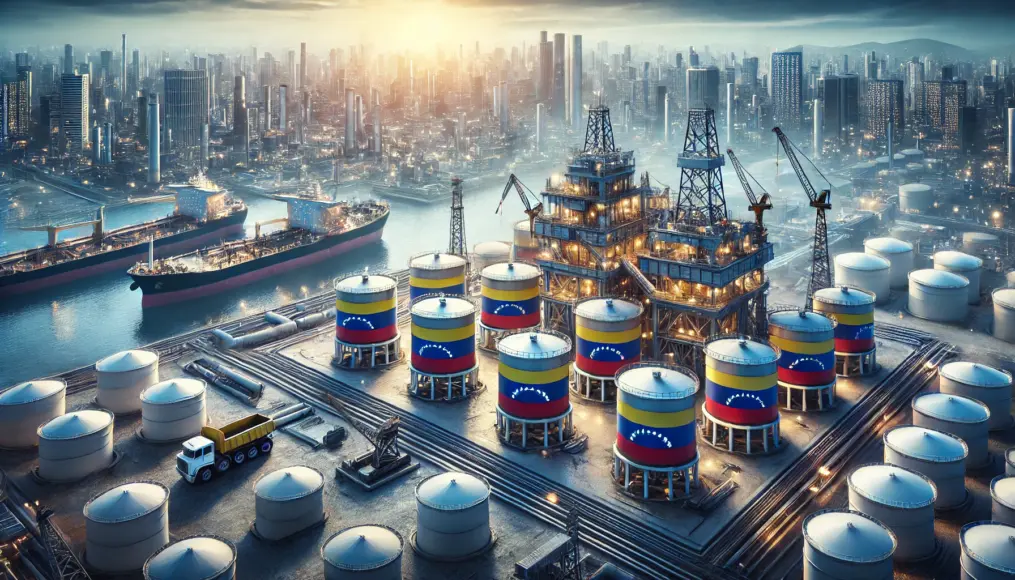
Global Oil Market Chaos
Every time oil prices fluctuate wildly, international investors shift to minimize risks.
This behavior causes widespread disruptions in stock and currency markets, creating prolonged instability.
Understanding how investor actions influence the market is crucial for crafting effective strategies moving forward.

Impact on Consumer Lifestyles
Manipulated oil prices have direct repercussions on consumer lifestyles.
A surge in gas prices increases commuting and logistics costs, which, in turn, raise the prices of food and daily essentials.
In rural areas, where public transport options are limited, rising gas prices can have a particularly devastating impact.
Thus, the volatility of oil prices compels individuals to pay close attention to its trends.
Direct Impact on Household Budgets
Household energy costs, such as gasoline and heating oil, are directly influenced by oil price changes.
These changes often force families to cut back on other spending, leading to a decline in overall consumption activities.

Unique Challenges for Rural Areas
Rural communities often depend on cars for transportation, making them more vulnerable to rising fuel prices.
The lack of alternative transportation options exacerbates the impact, highlighting a disparity between urban and rural regions.

Geopolitical Risks and International Relations
Oil price manipulation generates geopolitical risks, often intensifying international tensions.
For example, disputes over oil resources in the Middle East have long been a source of war and conflict.
Additionally, price competition and sanctions among oil-exporting nations destabilize the global political landscape.
These underlying power struggles reveal that the issue extends beyond economics into complex international dynamics.
Conflicts Over Oil Resources in the Middle East
The Middle East, known for its vast oil resources, has seen these resources spark regional instability.
Control over oil pipelines, in particular, has become a major source of international tension and conflict.

Economic Sanctions and Their Effects
Another aspect of oil price manipulation involves economic sanctions.
Sanctions on oil-exporting nations affect not only their economies but also those of importing countries.

Environmental Implications
Oil price manipulation also intersects with environmental issues.
When prices drop, renewable energy development often stagnates, increasing reliance on fossil fuels.
On the other hand, rising prices incentivize energy efficiency and investments in alternative energy sources.
Thus, oil price trends are pivotal in building a sustainable future.
Stagnation in Renewable Energy Development
Lower oil prices can diminish interest in renewable energy investments.
This dynamic potentially exacerbates future environmental challenges, making long-term planning critical.
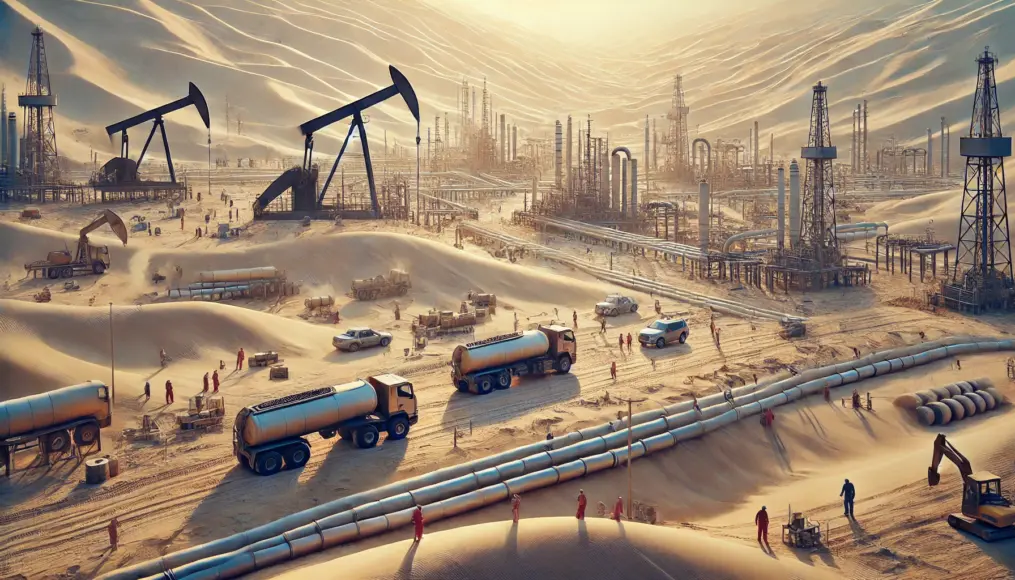
The Intriguing World of the Oil Industry and Conspiracy Theories
By exploring the historical background, mechanisms, and urban legends surrounding oil prices, we can uncover the profound impact of this “black gold” on the world.
Between these facts and rumors, hidden truths may lie beyond our knowledge.
What answers did you uncover about the connection between the oil industry and conspiracy theories?
Please share your thoughts and opinions in the comments!




Comment